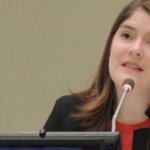Media Bosses Demand Protections for Journalists and Whistleblowers

Australian’s media bosses have finally come together to push for changes to laws passed in the name of national security which criminalise whistleblowers for exposing misconduct by state agencies and journalists for reporting it.
The actions comes in the wake of AFP raids on the home of journalist Annika Smethurst and the Sydney premises of the ABC, which occurred within days of each other earlier this month.
The heads of News Corp, Nine and the ABC have sought to garner the support of the National Press Club in order to present a united stand against the “culture of secrecy” in Australian authorities, which are enabled by law which make it a crime to publish an ever-broadening range of information regardless of whether or not it is in the public interest.
The three media chiefs are calling for limits to information which government departments can classify as secret, a review of Freedom of Information laws and exemptions for journalists from a range of laws enacted over the past seven years which can see them imprisoned for exposing crime and misconduct in government departments.
They are also advocating for urgent law reform to deliver tougher protections for journalists and public sector whistleblowers, including giving news organisations the right to contest the issuance of search warrants on journalists and media agencies.
ABC challenges warrant
The ABC launched legal proceedings in the Federal Court of Australia earlier this week to challenge the constitutional validity of the AFP warrant which authorised the raid on its head office, and News Corp has signalled its intention to do the same.
News media both here and abroad have expressed surprise and disappointment that a Western democracy like Australia has enacted such pervasive ‘national security’ laws – which have the effect of criminalising the legitimate criticism of the actions of state agencies, including seeking to prevent the public’s right to know about the horrific criminal actions of Australian soldiers in Afghanistan.
The AFP has disclosed that it’s warrant to search the ABC was targeted at journalist Dan Oakes, a key reporter on the Afghan Files, which exposed the conduct. The whistleblower who exposed the conduct, former military lawyer David McBride, is currently facing criminal proceedings for leaking information about the crimes. In a recent interview with Sydney Criminal Lawyers, Mr McBride explained that he could not allow the crimes to remain hidden.
“If the government breaks the law, something needs to be done about it. You can’t have it like in Nazi Germany, where people said, “I was just following orders.” That’s how we get holocausts.”, Mr McBride told us.
“Government employees have got to use their moral compass to say, “No. That’s wrong. Enough is enough.” And be prepared to stand up for it.”
Laws criminalise journalists and whistleblowers
A broad range of laws currently prevent whistleblowers from exposing government misconduct, and journalists from publishing about it.
Most recently, the National Security Legislation Amendment (Espionage and Foreign Interference) Act 2018 creates a series of laws that criminalise Commonwealth officers (who are broadly defined) that leak classified information, as well as reporting such information to the public. Significantly, there are no checks or balances for what can and can’t be classified – meaning the government can effectively keep secret whatever it believes is against its interests. The Act imposes prison sentences of up to 25 years.
In his address to the National Press Club, News Corp executive chairman Michael Miller said
the AFP’s raids were about “intimidation, not investigation.”
“And not just intimidation of reporters, intimidation of people with the courage to speak to journalists… These raids put our democracy in danger. They put the public’s right to know in danger and they put people who talk to journalists in danger.”
Pressure for change
And so, the battle lines have been drawn and there is now pressure on both the Federal Government and the Attorney-General Christian Porter to review the laws.
Many have asked the Attorney-General to “definitively state” that neither Ms Smethurst or the ABC’s journalists will face criminal persecution as a result of the raids earlier this month. So far, Mr Porter has remained tight lipped on the matter, although he has indicated that he is open to reforming federal whistleblower-protection legislation.
Specifics are not yet known, but Mr Porter has reportedly said he would consider an “overhaul” of the Public Interest Disclosure Act to make it “easier to use in order to provide greater protection for public servants and those who are responsible for deciding whether they should be protected while their concerns are addressed”.
Political debate
In the meantime, Centre Alliance senators Rex Patrick and Stirling Griff plan to introduce legislation proposing an amendment similar to the First Amendment to the United States constitution to protect freedom of the press in Parliament next month.
Prime Minister Scott Morrison has said he is open to considering changes to the laws, but that a balance must be found between ensuring no one is above the law and maintaining press freedom.
But the bottom line is that many believe that under the current laws, press freedom is hampered and therefore democracy is under threat. Australians deserve the right to be able to make informed decisions. They are not able to do so unless they have access to information that facilitates public discussion and brings important issues to light.








